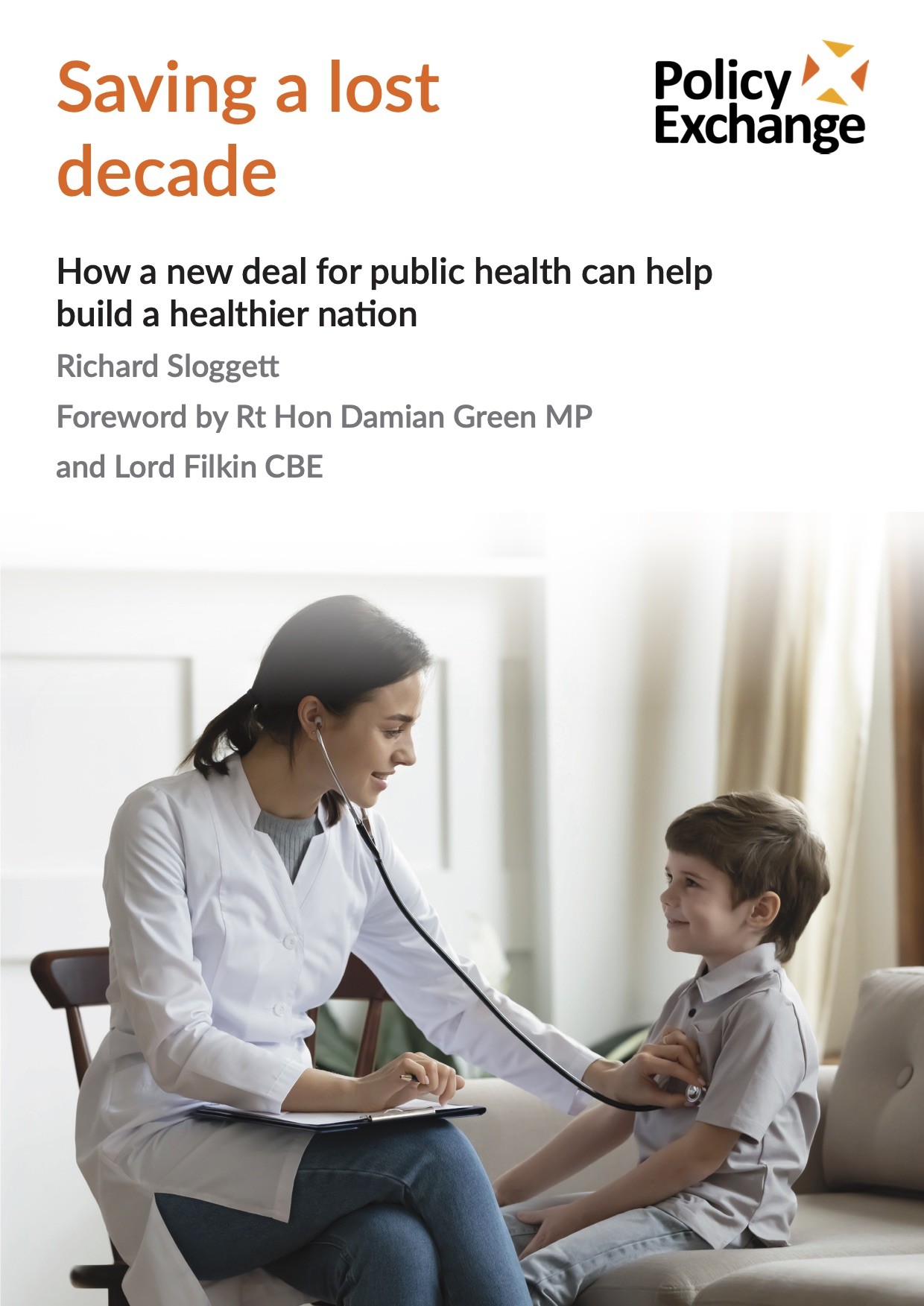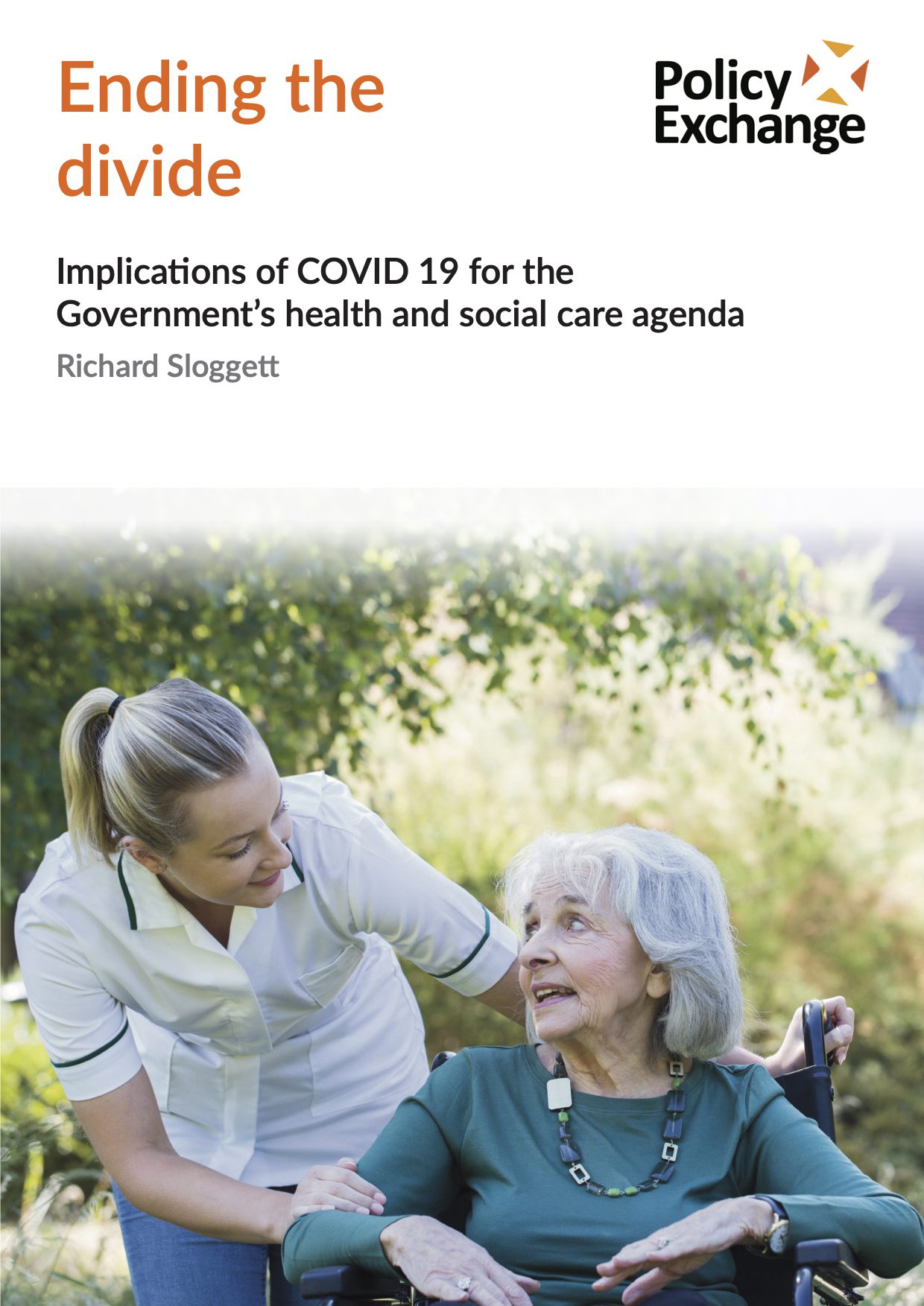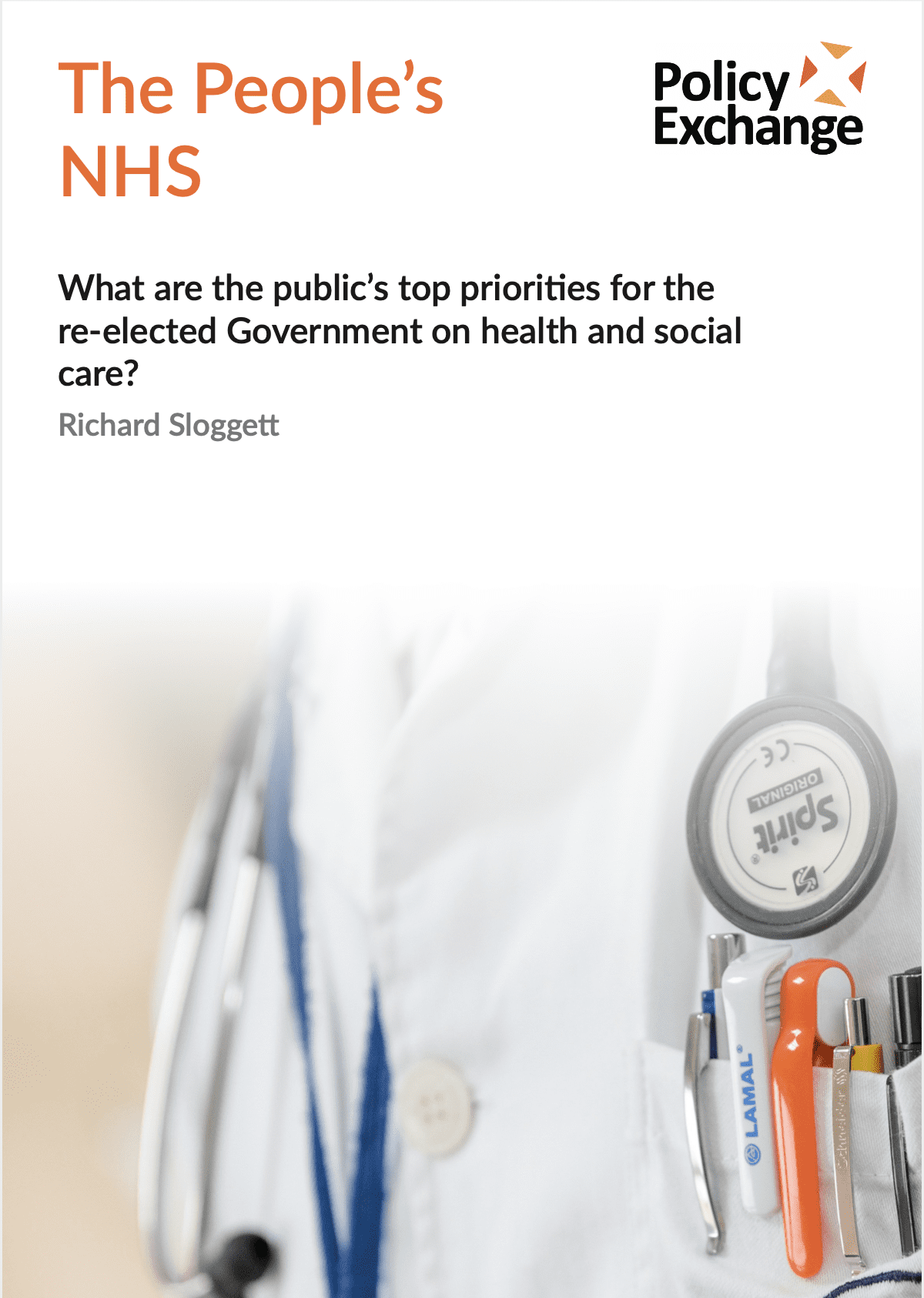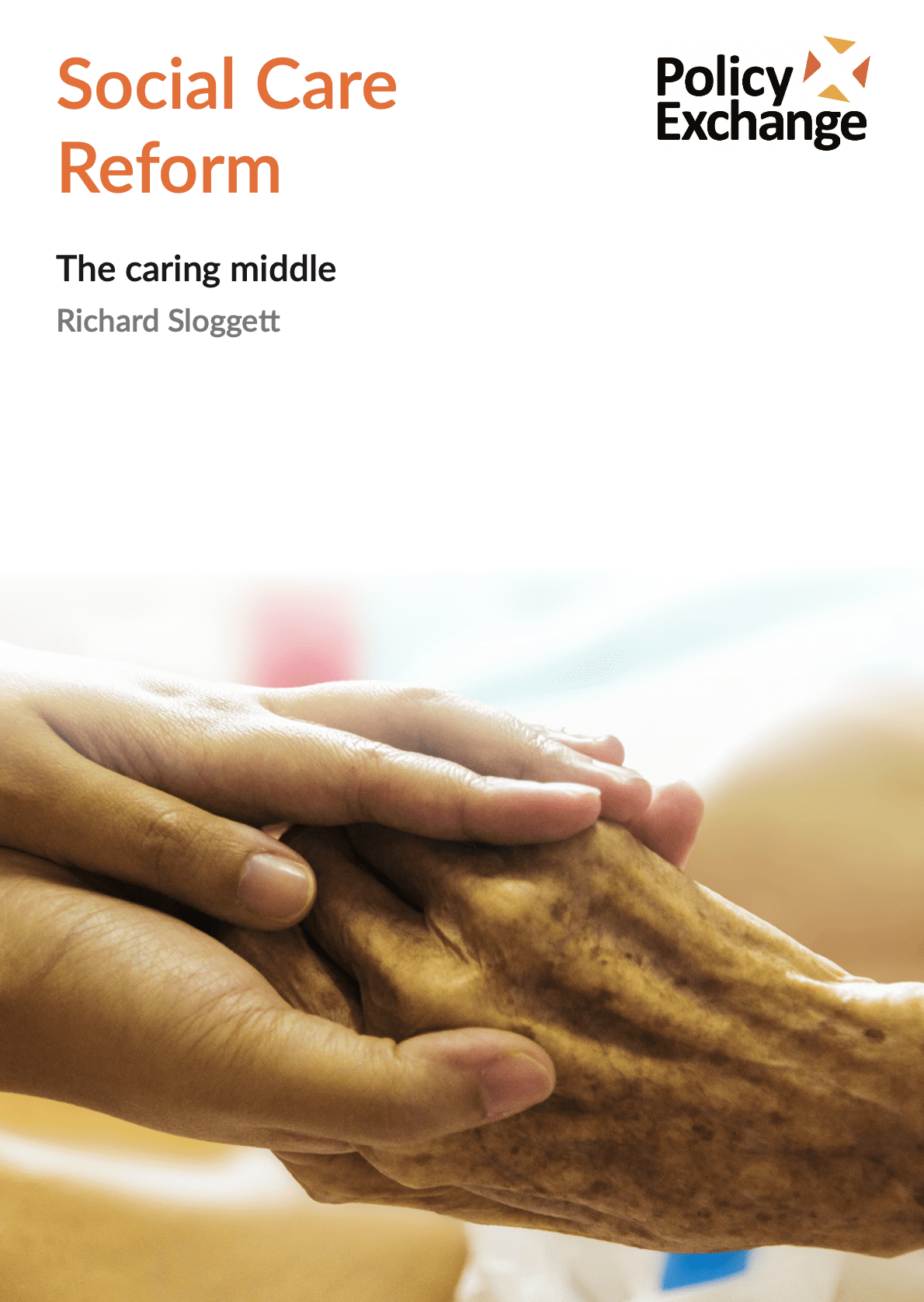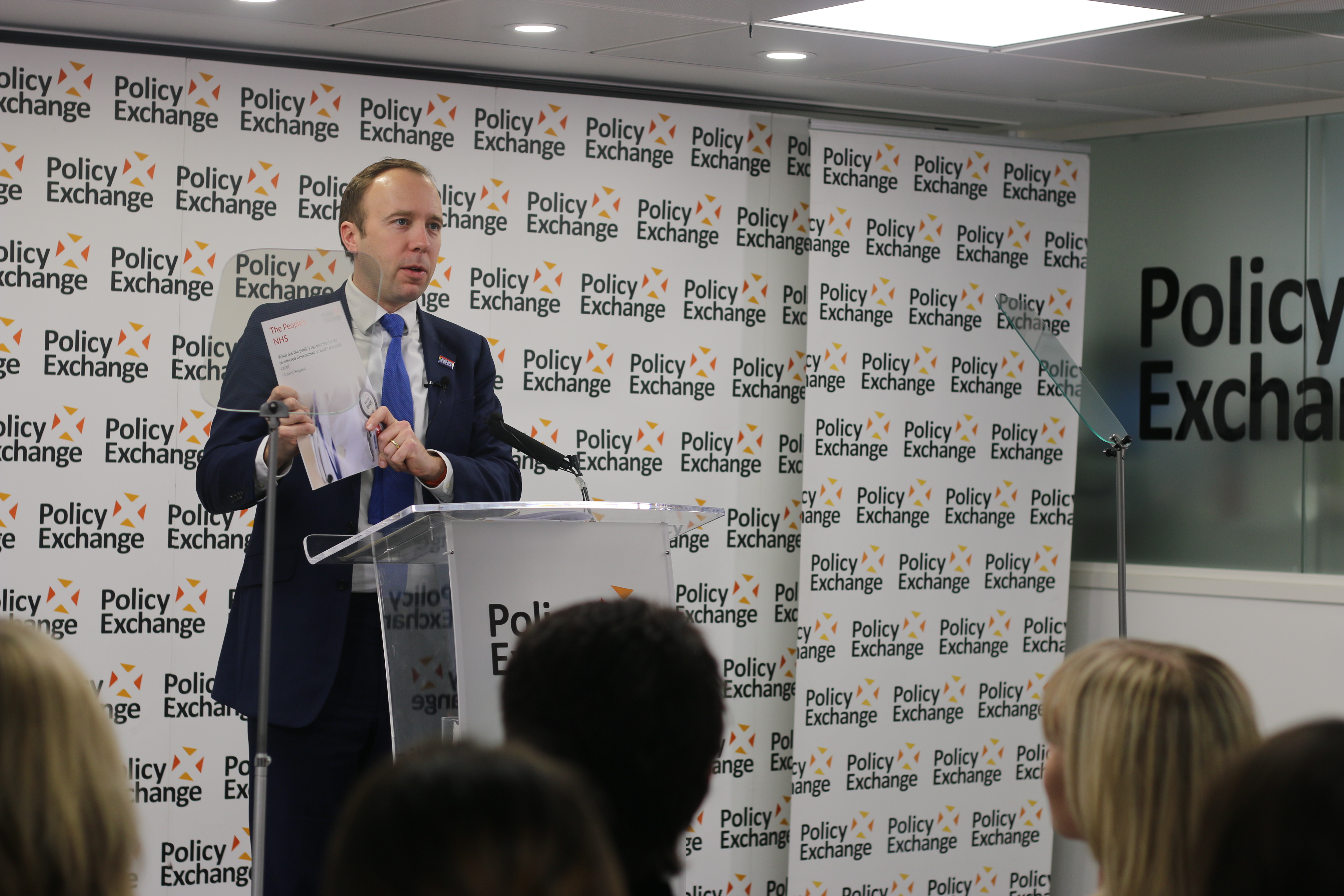Richard Sloggett
Senior Fellow and Health and Social Care Lead (2019-2020)
Richard Sloggett was a Senior Fellow and Health and Social Care Lead at the think tank Policy Exchange. Richard is former Special Adviser to the Secretary of State for Health and Social Care where he worked across public health, NHS and social care priority policy areas. Richard has been named one of the 100 most influential people in healthcare policy by the Health Service Journal and is an award winning health policy professional with over ten years experience in the sector.
Hospital and doctors’ leaders have intervened in the election campaign to call for an evidence based debate on the NHS issues that really matter rather than slogans, jibes and spin. Their calls are unfortunately likely to fall on deaf ears.
Analysis for Policy Exchange of the public Ipsos Mori Issues Index reveals the importance of the NHS in deciding general elections. A look back through the last six elections (1997-2017) at the role of the NHS in determining the outcome sees three trends emerge...
Download Publication Online Reader For far too long our healthcare policy has been focused on an institution, the NHS, rather than the health and wellbeing of the population as a whole. The COVID 19 pandemic has exposed the flaws of this approach. High rates of obesity, increasing health inequality and stalling life expectancy have all translated into a higher death rate recorded from the pandemic. New analysis undertaken by Policy […]
The coronavirus crisis proves the artificiality of the funding divide between the NHS and social care, says a new Policy Exchange research note. The paper is authored by Richard Sloggett, Policy Exchange’s Health and Social Care Lead – until recently Special Adviser to Matt Hancock, the Health and Social Care Secretary.
The paper – Ending the divide – argues that the Government’s recent promises on social care – cross-party talks and a manifesto pledge that “nobody needing care should be forced to sell their home to pay for it – must now be strengthened.
Following an election that was as much about the NHS as it was about Brexit, recruiting more doctors and nurses should be one of the Government’s top priorities, according to new polling conducted for Policy Exchange, which shows that:
42% of voters cited a shortage of doctors and nurses as one of their three biggest concerns for the NHS and 61% want investment in these professionals prioritised by the Conservatives.
New YouGov polling carried out for Policy Exchange shows the extent to which women, who have been identified as critical voters at this general election, worry about the impact of social care on their families and careers. As the major parties finalise their manifestoes, the polling shows that:
• One in five (21%) women aged 35-55 have helped care for someone with long-term needs and nearly half (43%) of women in this group, know a close family member who has done this
• 64% are worried about the effect that losing their home and other assets would have on their family If they required care in later life
• 65% feel that the care system is too complicated too understand
• 53% worry about the impact on their career if they were needed to take care of a relative
There is hope. As many of us sit through another lockdown and our healthcare staff work as hard as ever to keep us safe, an end to the nightmare of Covid is in sight. The rapid development of new vaccines is a remarkable achievement (as my colleague Rob Ede and I noted on this blog last week). The task of now deploying them as quickly as possible is well underway. […]
Throughout the pandemic, debate has swirled around the relationship between science and Government. This debate has been fierce, loud and challenging. But beneath the noise, there is a history of successive UK Governments of different political parties working with and backing a sector that is now at the heart of our way forward. Back in early 2010, the Royal Society, at the request of the Government, prepared a plan for science research […]
I recently gave evidence to the Public Services Committee in the House of Lords on how the coronavirus pandemic will affect the future role, priorities and shape of public services.
A number of key themes and issues were raised during the session that will be important in the months and years ahead. Many of these reflected the findings from our report Ending the Divide which provided some early insights into the impact of the pandemic on the Government’s health and social care agenda.
When the coronavirus crisis first hit the UK, the greatest fear was that it would overwhelm the NHS. Ministers and clinicians had seen the catastrophic impact overseas – in first-rate health care systems such as Italy’s – and worried that hospitals here faced total collapse. Thanks to swift and concerted efforts, that fear has not been realised.
However, it is now clear that Covid-19 has hit hardest in this country’s care homes instead. New data from the Office for National Statistics shows that the number of deaths recorded in care homes in England and Wales this year is more than double the average from previous years. This is a national tragedy. Families across the country are grieving for loved ones.
Much has been made of Dominic Cummings early year blog-post asking for ‘misfits’, ‘policy experts’ and ‘weirdos’ to join him in the new Government to solve some of the country’s most complex problems.


